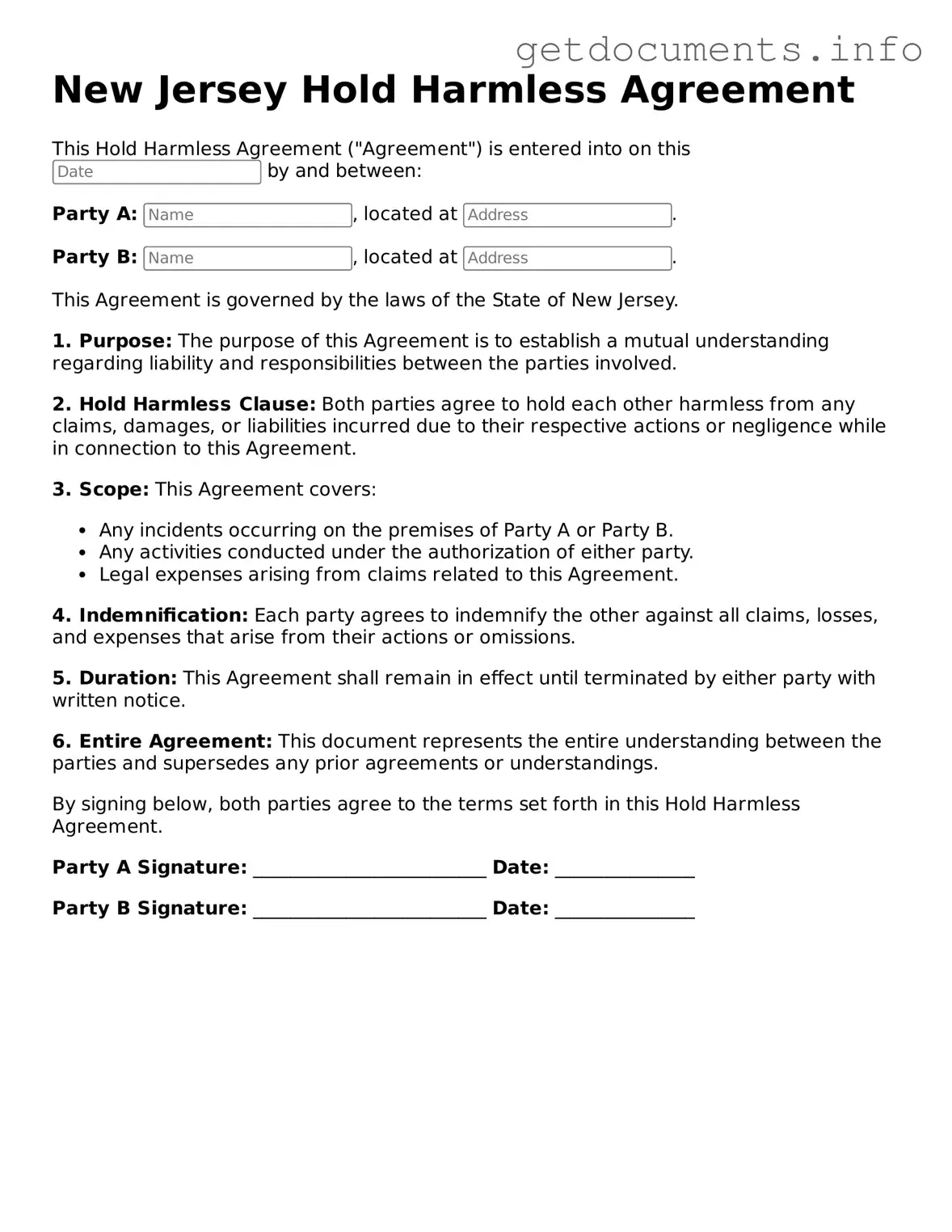Free Hold Harmless Agreement Template for New Jersey
The New Jersey Hold Harmless Agreement is a legal document designed to protect one party from liability for certain risks or damages that may occur during a specific event or activity. This form is commonly used in various situations, such as rental agreements, construction projects, and recreational activities, ensuring that one party agrees not to hold the other responsible for potential injuries or losses. Understanding the implications of this agreement is crucial for anyone involved in these types of transactions.
To ensure proper protection, consider filling out the form by clicking the button below.
Access Hold Harmless Agreement Editor

Free Hold Harmless Agreement Template for New Jersey
Access Hold Harmless Agreement Editor
Got places to be? Complete the form fast
Fill out Hold Harmless Agreement online and avoid printing or scanning.
Access Hold Harmless Agreement Editor
or
⇩ PDF File
